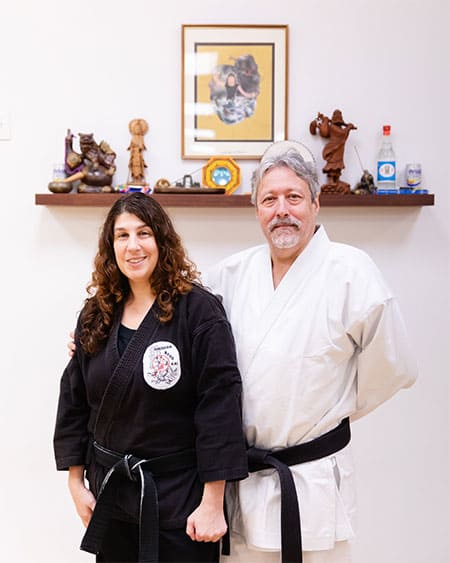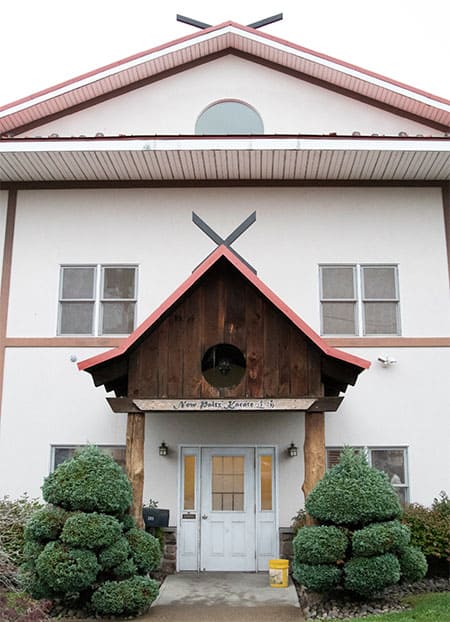
Ever consider karate as a fitness pathway? If you haven’t, it’s possible you’re missing out. Studies show that karate helps just about everything about your body: better flexibility, toning, range of motion, posture, and energy are just a few of the main benefits.
Then there’s the psychological and spiritual payoff: Discipline, confidence, patience, and alertness are all enhanced by the century-old art form. Karate can be transformative, whether you start at age 5 or 65. At New Paltz Karate Academy, you can check it out free of charge for two full weeks.
After graduating from SUNY at New Paltz, Catskills native Maurey Levitz moved to New Jersey for a computer programming job. To keep life balanced, he took up traditional Okinawan karate. “I wanted to learn something new and do something physical,” he says. “And I seemed to have a knack for it. They started advancing me faster than most people.”
A few years later, New Paltz beckoned him back. The crisis hotline he’d been involved with was about to shut down if no one stepped in, and he couldn’t let that happen, so he moved back up here and started graduate work in psychology.
“But I missed the karate people I knew in Jersey,” he says. “I was not moving back to New Jersey, and I couldn’t get my New Jersey people to move up here, so I said, well, I’ll just have to make some more karate people up here.”
In 1992, already an adjunct professor and doing therapy for an internship, he founded New Paltz Karate Academy and did just that. “I liked teaching, and I liked counseling, and being a karate teacher was just a really good opportunity to put those two facets together,” he says. “Being a therapist is very rewarding, but you’re primarily dealing with the negative aspects of people’s lives. And as a professor, you deal mainly with college-age people. As the karate teacher, I get to work with people across the lifespan, for longer periods of time, and not just focus on a certain aspect of their life, but whatever aspects of their lives that they invite you into and that you're able to help with. I still teach a couple of courses, but psychology's been the hobby and karate's been the main focus.”
It would be fair to say he’s made quite a few more karate people up here to hang with. Today, Levitz runs Traditional Okinawan Karate, an organization with outposts in East Fishkill, Pleasant Valley, Brooklyn, and Kinnelon, New Jersey, all of them offering martial arts and fitness for all ages.
“It’s enormously rewarding,” says Levitz. “You get to just help people get healthier. I’ve seen people stop needing medications, seen people switch from needing a chiropractor three times a week to taking karate three times a week. I’ve had people tell me that without the school, they wouldn’t still be around—that it was such a community that it kept them from making bad choices.
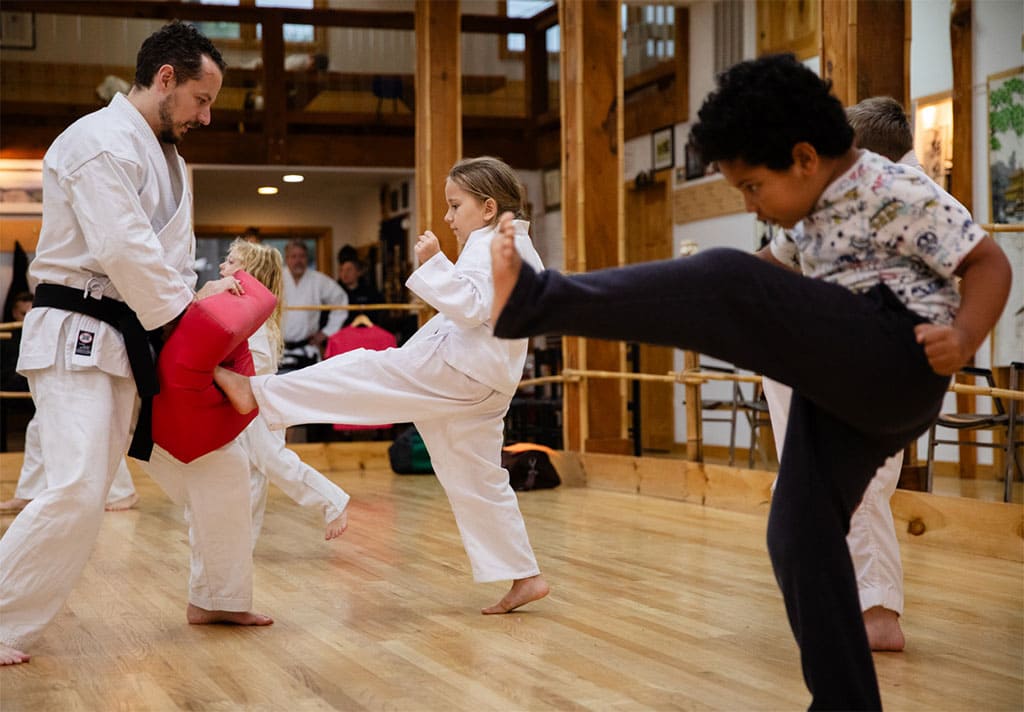
Karate can be transformative, whether you start at age 5 or 65.
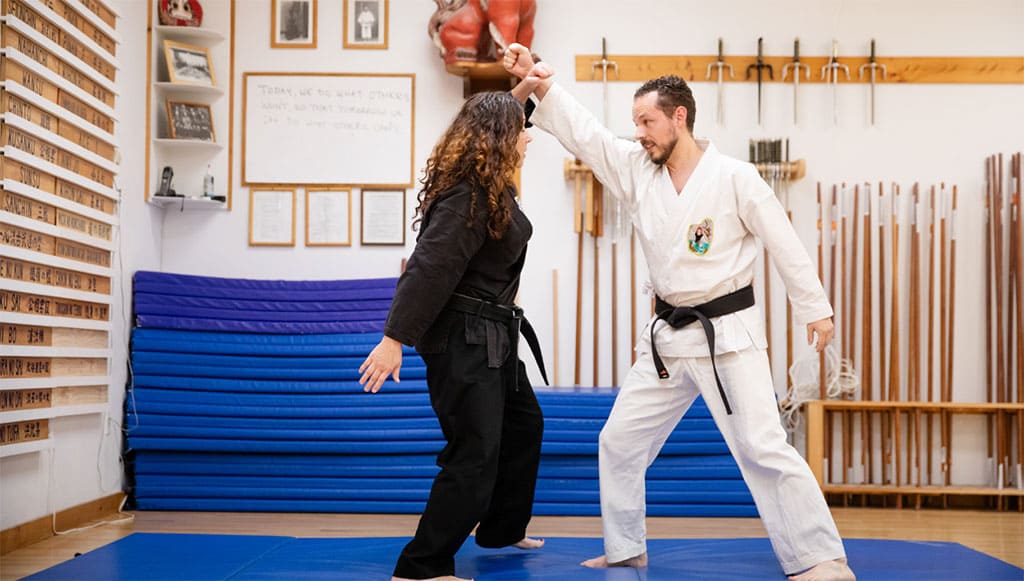
Discipline, confidence, patience, and alertness are all enhanced by the century-old art form.

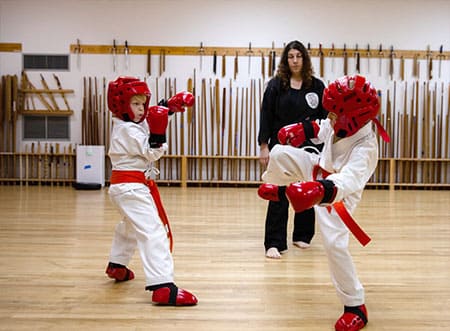
Levitz says people begin their journey for a variety of reasons and then discover bonus benefits along the way. “It varies a lot,” he says. “A lot of times it's exercise. Sometimes, it's self-defense. Sometimes, it's confidence. Often, it's a social thing. Social connections, gathering to do things together, has always been something that's made America great, and that's on a big decline. The karate school is one of these places where that's still happening—you can get together and work out hard and have a soda or beer with them after class, and you’re with a group of people who are all trying to make themselves better in some way, so the common denominator is very positive.”
Karate is a useful form of self-defense, and Levitz recalls one particular scenario in which a bullied student turned the tables—landing in minor trouble but with his larger problem, with a larger kid, ultimately resolved with a peace treaty. But he says that having karate skills and the confidence that comes with them is more likely to prevent a fight in the first place. “People ask me how teaching a kid how to punch and kick can make them less likely to fight, and I have various ways of explaining it. First of all, a lot of aggression comes from insecurity. Bullies aren’t happy, right? So imagine this: you’re an eighth-grader and a little fifth-grader is picking on you. How seriously do you take it, what’s your response? You don’t feel like you need to hurt a little kid. You walk away. But if the roles are reversed, it’s scary and upsetting. The smaller person can feel helpless. What martial arts can do for you is make anyone who’s bothering you into the equivalent of that fifth-grader you don’t need to bother with, so you don’t feel any shame in turning away from the fight.”
The dojo is a place to face your fears in a supportive environment, and everyone can benefit from that.
Many karate schools in the US, he says, are about 80-90% kids, and he’s proud of the fact that New Paltz Karate Academy is much closer to 50/50 kids/adults.
“I love the diversity of it,” he says. “And I love the diversity of issues that bring people in. One parent might bring in a kid to build confidence, because they’re shy; another might bring in a kid who has a hard time controlling himself and being peaceful. What happens in the class is that both of those kids will get pulled toward the center, toward taking charge of their own behavior through practice, so kids with seemingly opposite needs both get what they need from the same class. Adults, too; they’ll come in for one reason and gradually discover a lot of other benefits. The dojo is a place to face your fears in a supportive environment, and everyone can benefit from that.”
new paltz karate academy
22 N Front Street, New Paltz
845-430-5965,
TOKarate.com
